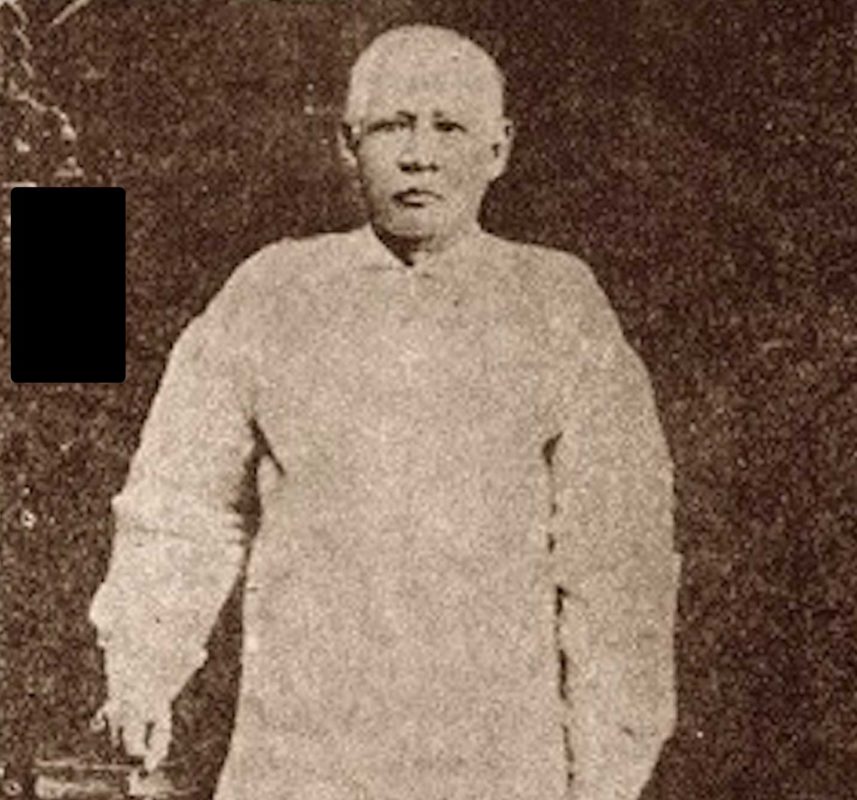Rizal’s devotion to his father

Francisco Mercado, national hero Jose Rizal’s father. WIKIPEDIA
I remember reading Senator Rafael Palma (1874-1939), the fourth President of the University of the Philippines, who concisely dealt with the rare topic of filial piety, in his biography of José Rizal, originally penned in Spanish.
While he identified Rizal as “the pride of the Malay race,” he created a short literary portrait of Rizal’s dad, Don Francisco, a Chinese mestizo, whom he described as “a pure Filipino,” un Filipino de pura cepa, or in my own interpretation “a native or indio of the most eminent type.”
According to Dr. Palma, Rizal just adored his father, a.k.a. Teniente Kiko, who was a prosperous sugar landowner, a lieutenant governadocillo of Calamba, and a good provider for the family. His older brother, Paciano, was the second child and our national hero the seventh in a huge family of 11 children (nine girls and two boys). Rizal as a boy saw his papa mingle with Spanish friars, army 0fficers, and colonial administrators almost like “one among equals,” una inter pares.
Before his execution, Rizal went down memory lane, recalled his childhood, and saw his father by his side in the most unforgettable experience of riding a casco or boat with a roof on their way to a pilgrimage in Antipolo. He was seven. From Antipolo, father and son went to La Concordia College in Manila (today’s Pedro Gil Street) and visited his eldest sister, Saturnina, who was a student-border in that school.
Oh yes, his father, like all padres de familias grandes, was a disciplinarian. Yet what Rizal dotingly remembered was a constant companion in his boyhood, who gifted him with a pony he named Alipato.
Don Francisco was physically taller than the ordinary Pinoy, with “solid broad shoulders, strong constitution… of serious and reflective mien, with prominent forehead and large dark eyes,” according to Dr. Palma. Out of gratitude to his old man, in 1881, young Rizal made a clay bust of his father and, about six years later, he meticulously carved a life-size wood sculpture of him.
Were those carved images a meaningful display of young Rizal’s filial piety executed with long hours of hard work and so much patience? Absolutely!
Keeping in his heart such reverence for his dad, Rizal named his and Josephine Bracken’s premature son “Francisco.” The infant Francisco died a few hours after birth in Dapitan, where they lived together as partners.
“Without much kissing affectionately your hand and my father’s,” Rizal wrote to his mom from Dapitan in February 1895, “it would be delightful if you can come here… Your son who loves you from the heart.” Su hijo que le quiere de corazón. In almost all letters addressed to his mother, you’d find his father mentioned with love and affection.
And (you might be curious) what were Rizal’s last words to his father? At six in the morning of December 30, 1896, the day of his martyrdom, our hero penned a note to his brother Paciano: “Tell our father I remember him, and how I remember my whole childhood, of his affection and his love. Ask him to forgive me for the pain that I have unwillingly caused him.”
Then he stopped writing. On the same paper, discontented with his previous note, Rizal picked up his quill, his pluma de pavo, again and directly addressed his beloved father with one last message:
“My beloved Father, pardon me for the pain with which I repay you for sorrows and sacrifices for my education. I did not want nor did I prefer it. Goodbye, Father, goodbye… José Rizal.”
Mi Amadísimo Padre: Perdóneme V. el dolor con que le pago sus desvelos y fatigas para darme mi educación. Yo no quería esto ni lo esperaba. ¡Adiós, Papa, Adiós!
Happy Father’s Day to all!
Jose Mario Bautista Maximiano (facebook.com/josemario.maximiano) is the author of MCMLXXII: 500-Taong Kristiyano. Volume Two (Claretian, 2021) and MDXXI: 500 YEARS ROMAN CATHOLIC, Volume One (Claretian, 2020).

